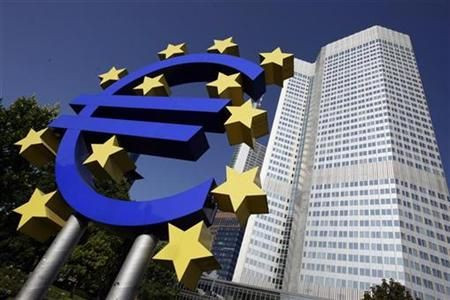Is the Eurozone Set to Plunge Into Deep Recession?

The eurozone seems all set to enter a period of deep recession, with the credibility of governments' ability to keep the region in balance in serious doubt. The Organisation for Economic Co-operation and Development has already issued a warning that Eurozone and U.S. leaders must act urgently to stop their debt crises from spiralling out of control.
The euro area crisis represents the key risk to the world economy at present, the OECD said in an unusually stark report.
According to Capital Economics, a leading consultancy on macro-economic issues, the November EC business and consumer surveys also indicate the possibility of a deep recession in the eurozone. The report suggests that a possible depression could be far more severe than most forecasters currently envisage.
The fall in the economy-wide Economic Sentiment Indicator, from 94.8 to 93.7, was slightly sharper than expected (the consensus was 94.0) and left the index at a two-year low. At this level, it appears consistent with small falls in eurozone GDP compared with a year earlier, implying sharp quarterly declines around the turn of the year.
November's deterioration was broad-based by sector, with consumer, service sector and industrial sentiment all falling.
The OECD has stated that the eurozone is already in slight recession and a major misstep in handling the debt crisis could drag the United States, Japan and other advanced economies down as well.
The European Central Bank should buy up devalued government debt bonds in huge quantities and interest rates must fall, the OECD said. This stance is the opposite to that proposed by Germany, which has so far rejected extra bond purchases, putting forward the argument that the priority is for countries in trouble to reform their economies
If the eurozone goes into recession, into a deep recession, then I'm afraid Britain will find it difficult to avoid a recession itself, because people watching this program will be going to work in companies that make things that they would normally sell to Germany, France, Italy and the like, said George Osborne, the British chancellor of the exchequer, speaking to the BBC while in Brussels for a meeting with his European counterparts.
Moody's credit rating agency has an equally severe outlook, warning everyone who cares to listen that the eurozone crisis threatens all EU country's ratings.
Earlier this month, the European Union slashed its growth forecast for the 27-nation bloc for the coming year. The EU's Gross Domestic Product in 2012, adjusted for inflation, is expected to grow just 0.6 percent, according to statements from the European Commission. The figure is down drastically from a 1.9 percent forecast made only six months ago. The EC's forecast for the 17-nation eurozone is 0.5 percent growth in 2012, which falls short of the May outlook of 1.8 percent growth.
Unemployment across the bloc is expected to increase slightly next year, from 10 percent to 10.1 percent, while the EU's spring forecast predicted unemployment would fall to 9.7 per cent in 2012.
With the eurozone sovereign debt crisis having intensified and seriously discouraged investment and consumer confidence and with the austerity packages having sharply suppressed growth across the bloc, it could be only a matter of time before the continent plunges into deep recession which will have wide repercussions globally.
© Copyright IBTimes 2025. All rights reserved.





















